Research
Acces BrainMap, EERTIS and the Funding & Tenders Portal
Laboratory for Genetic Breeding and Plant Selection
Directions and activities:
- Maintaining and enrichment the fund/potato genetic heritage
- In situ and ex situ conservation of potato germoplasma
- Creation of new potato varieties by using conventional and modern methods of production, using wild and cultivated species with a good adaptation to Romanian conditions, with resistance to diseases and pests, tolerance to thermo-hydric stress, through rational use of organic resources and technological developments
- Increasing the accuracy and specificity of conventional potato breeding methods by addressing modern breeding techniques
- Improve the cultural quality of seed potatoes by replacing complex field experiences and promoting the use of biotechnologies
- Approval at the State Institute for Testing and Registration of Varieties (SITRV) and registration of new potato varieties in the Official Catalog of Cultivated Varieties of Romania
- Patenting of breeding creations at the State Office for Inventions and Trademarks (SOIT)
- Making demonstration plots in the field to farmers, with new breeding creations
- Involving potato producers in expanding Romanian varieties
- Drawing up scientific works and transfer of information to the main beneficiaries (farmers, processors, consumers)
- Involvement in research projects and national and international collaborations with units involved in the domain
- Popularization of new breeding creations in scientific or exhibition events, congresses, workshops, communication sessions at national and international level
- Ensuring authorities and relevant ministries with scientific and technical support to develop long-term strategies
www.eertis.eu
Contact persons:
Head of laboratory Ph. D., eng. Ştefan Floriana Maria – profil ![]() ,
, ,
![]() ,
, ![]() ,
, ![]() ,
, ![]() ,
, ![]()
Eng. Poptelecan Diana – profil ![]() ,
,,
![]() ,
, ![]()
Eng. Paraschiv Delia Elena – profil
Eng. Chelmea Carmen – profil ![]() ,
,
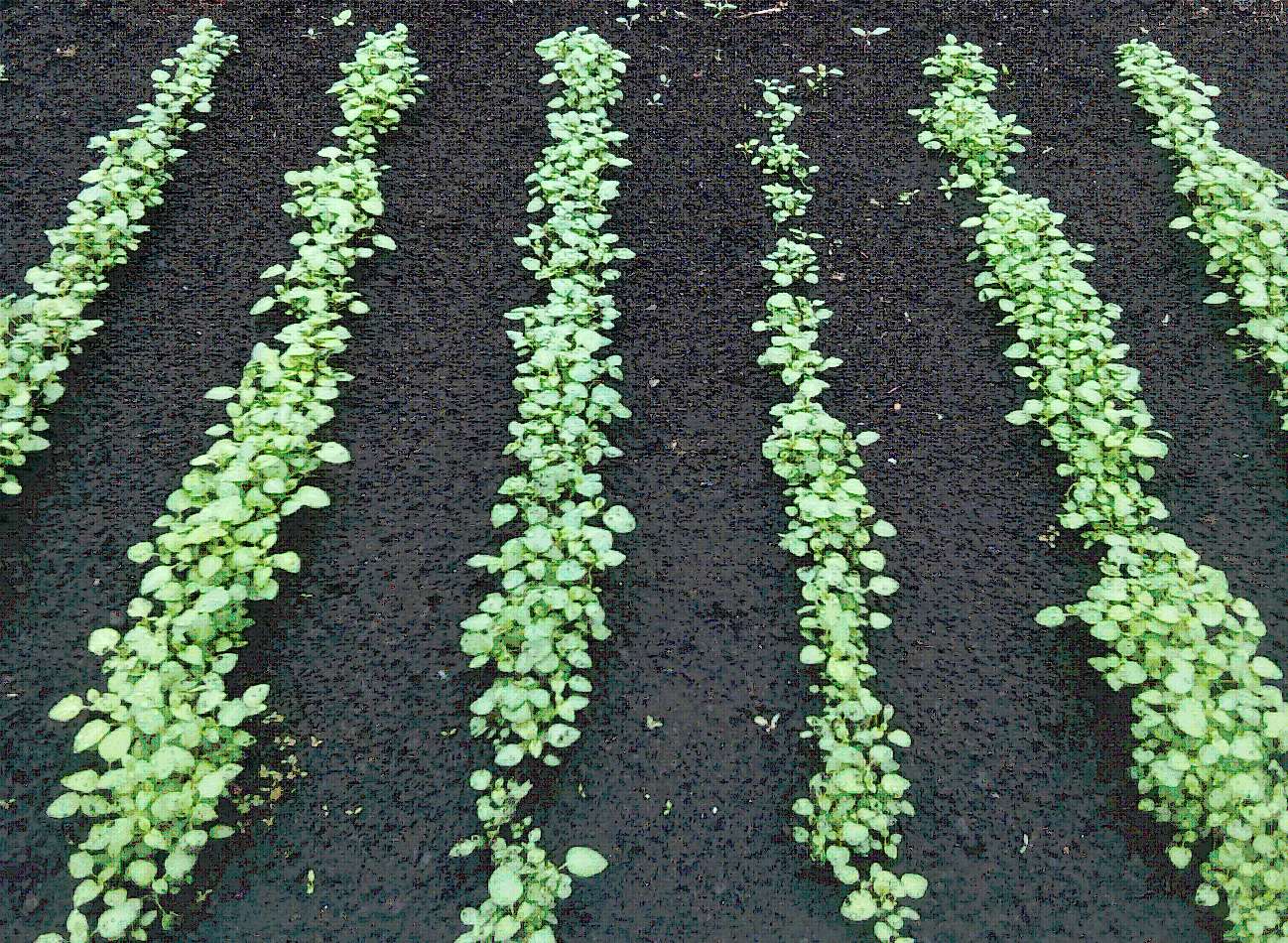
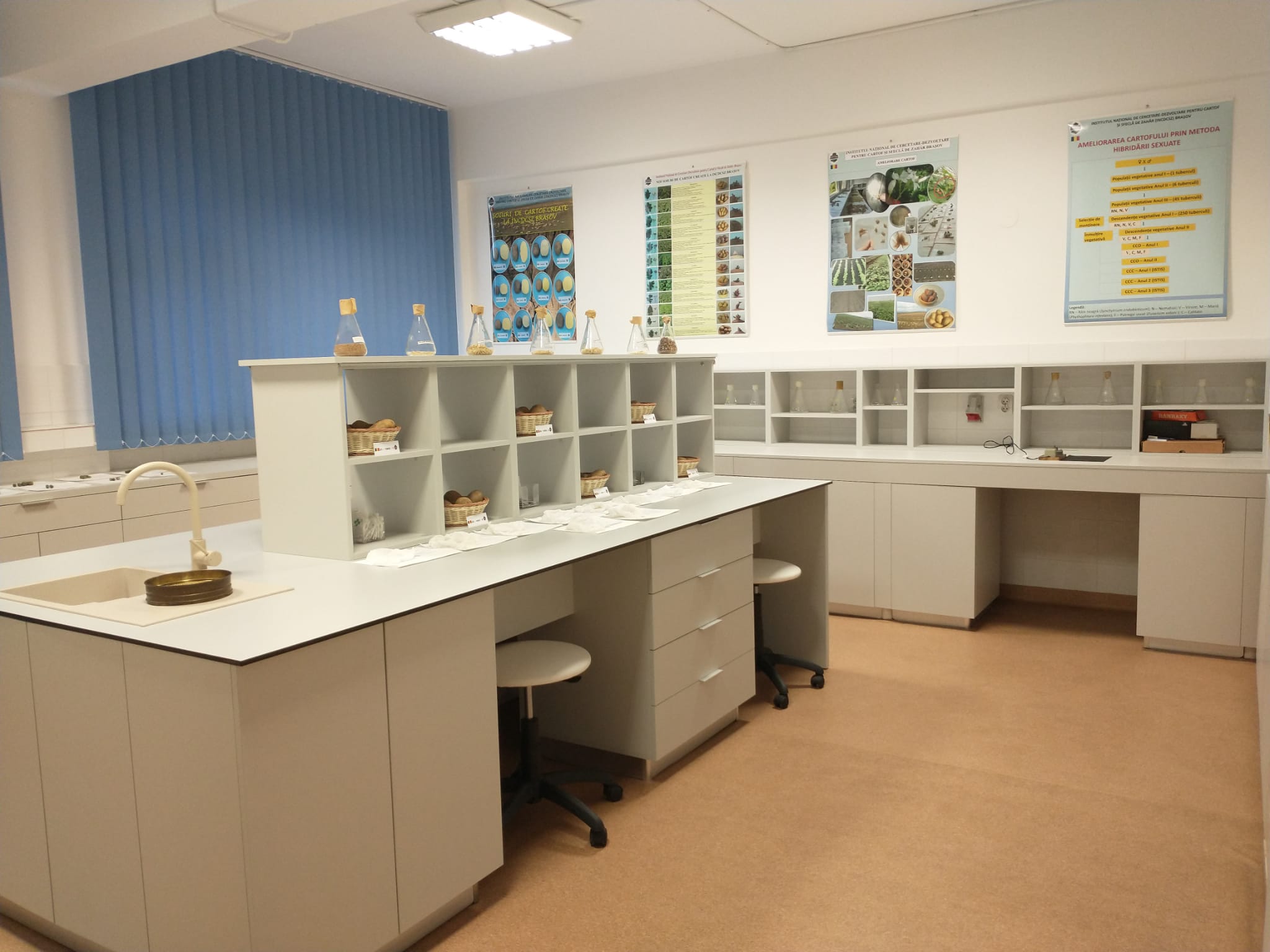
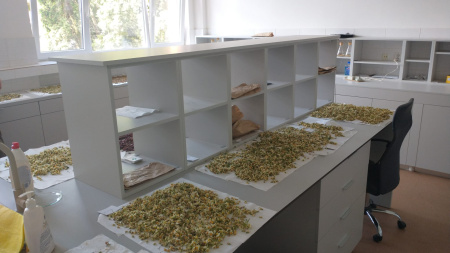
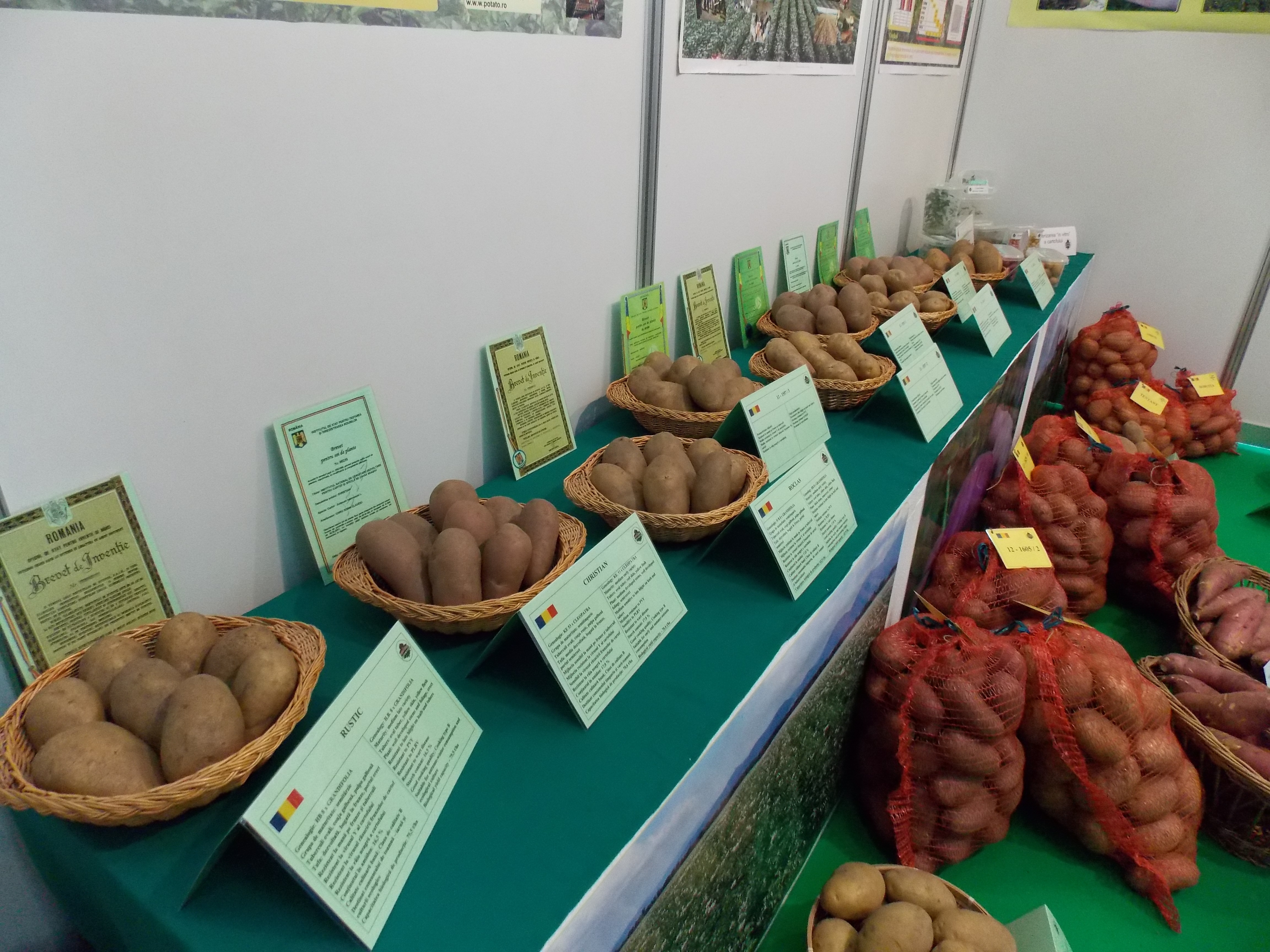

Tissue culture laboratory
Plant tissue culture compartment
Research directions and activities:
- Seed potato production of superior biological categories by implementing tissue culture methods and promoting multiplication on insect-proof facilities
- Conceiving and implementation of the new national potato seed production scheme in Romania
- Reduction from 8-12 years to only 3-4 years for introduction of new breeding varieties made at the Institute and research stations
- Production of the initial material free of pests and diseases
- Coordination and realization of Pre-Base field for potato varieties founded in the National seed potato production system in Romania
- Obtaining a core nucleus of potato micro-plants free of pests and disease, from the main Romanian genotypes located in the National Potato Production System, as well as from the parental forms from the Institute collection
- Production of clonal material from Romanian and foreign varieties free of license
- Unconventional methods of selection resistant/tolerant hydric stress genotypes using culture media with different structures and compositions
- Research on the possibility of using generative method of potato multiplication in order to support and complement the classical system based on vegetative propagation
- Introduction and maintenance of sweet potato varieties in the germoplasma collection
- Production on „insect proof” spaces of mini-tubers by hydroponic culture method
www.eertis.eu.
Contact persons:
Head of laboratory Ph. D., eng. Cioloca Mihaela – profil ![]() ,
, ,
![]() ,
, ![]() ,
, ![]() ,
, ![]() ,
, ![]()
Ph. D., eng. Tican Andreea – profil ![]() ,
, ,
![]() ,
, ![]() ,
, ![]() ,
, ![]()
Ph. Eng. Popa Monica – profil ![]() ,
, ,
![]() ,
, ![]()

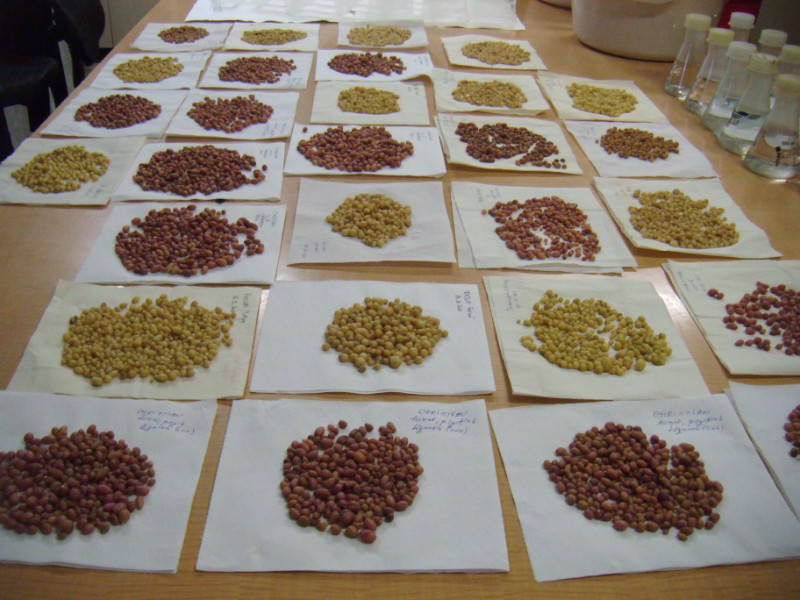
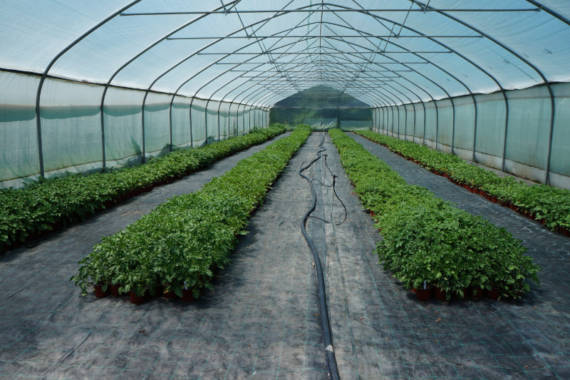
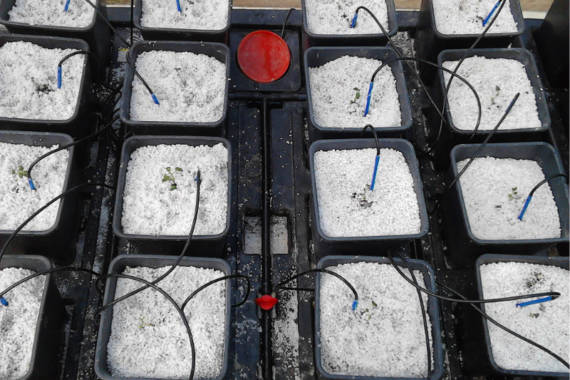
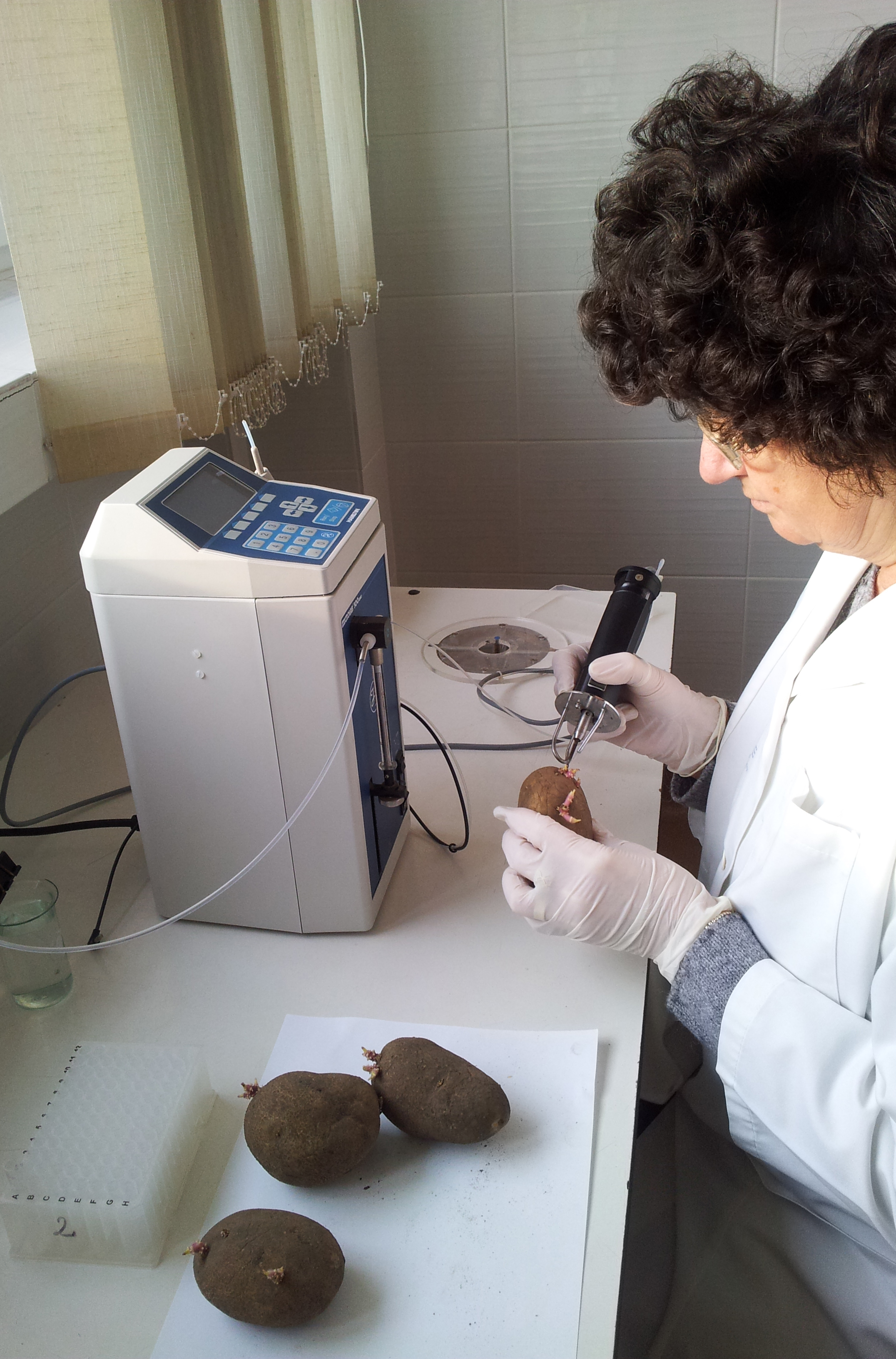
Virology compartment
Research directions and activities:
- Identifying ways to reduce the cost of viral tests, analyzes essential to obtain a plant material that conforms to phyto-sanitary norms
- Estimating the effect of phyto-sanitary measures on preventing or decreasing the spread of virus diseases
- Optimization the processes of viral cleaning through in vitro chemotherapy and electrotherapy
- Identification and implementation of methodological solutions to control some of potato viruses
- Evaluation of potato virus Y strain spectrum, degree of infection with necrotic strains in some potato genotypes in accordance with applied phyto-sanitary treatments
- Potato viral testing (diagnosis of infections with Y, M, X, S, A virus and potato leaf roll in samples taken from leaves, tubers and sprouts)
- Identification of necrotic strains of PVY by immunoenzymatic and biological assays
- Purification of antisera, conjugate preparation and specific buffers for ELISA test
- Lyophilization of plant material (preservation for further testing of samples)
- Keeping the test plant collection (required for experiments with virus sources, identification of viral stems)
- Getting the necessary controls for viral tests
- Research on identification of some methods to reduce potato viruses spread, to get free virus material, using novel methods (essential oils, antioxidants, chemotherapy, electrotherapy, ultrasound)
- Elaboration of studies on the behavior of some plant viruses in different pedo-climatic conditions in Romania
www.eertis.eu
Contact person:
Head of laboratory Ph. D. Bădărău Carmen Liliana – profil ![]() ,
, ,
![]() ,
,![]() ,
, ![]() ,
, ![]()
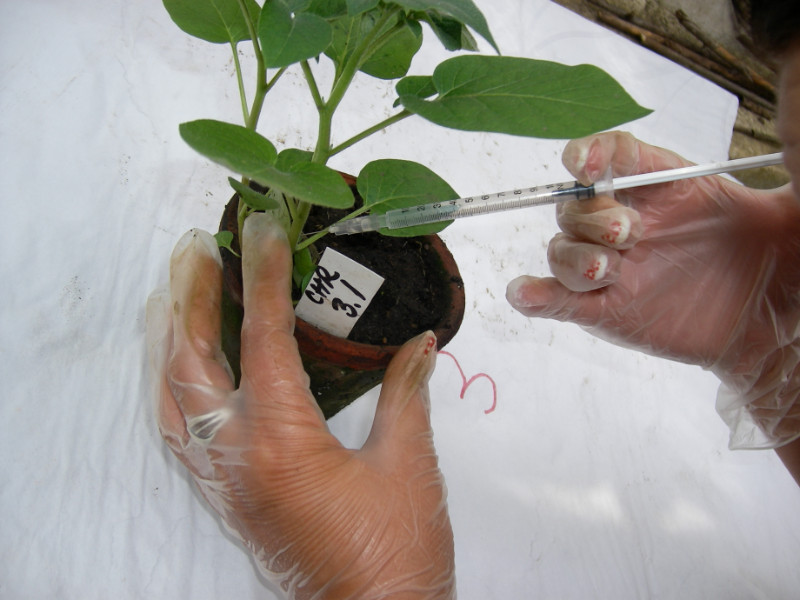
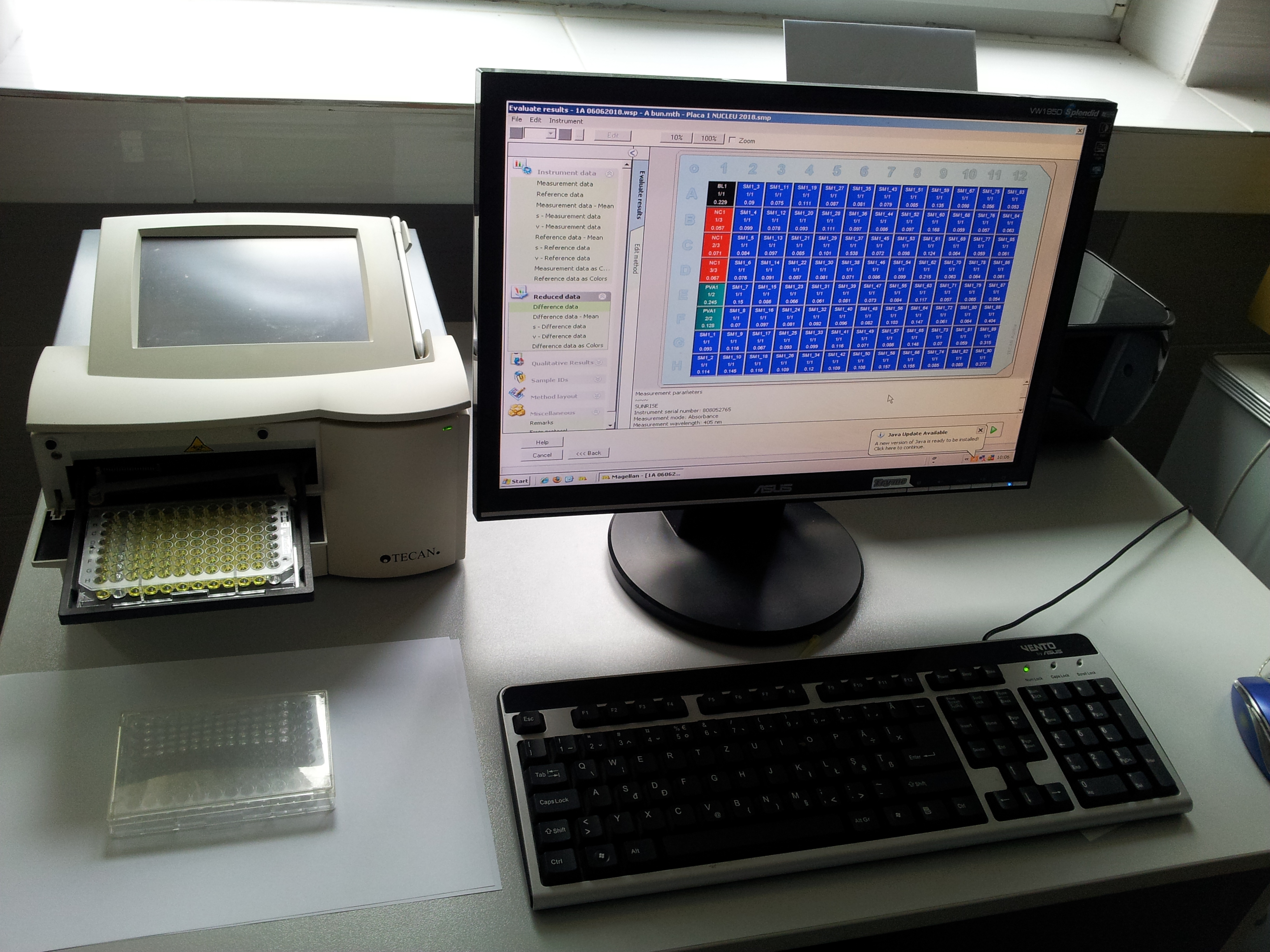
Technology and good agricultural practices laboratory
Crop Protection Compartment
Research directions and activities:
- Testing of fungicides, insecticides and herbicides for potato crop within the laboratory accredited by MARD to perform biological efficacy tests in accordance with good experimental practice
- Development of integrated control systems with minimal environmental impact
- Studies on biological compatibility of plant protection products in order to increase economic efficiency by reducing the number of treatments and the negative impact on the environment
- Elaboration of technical, organizational measures and data bases for prognosis, monitoring and control of quarantine diseases (Clavibacter michiganensis sspsepedonicus, Ralstonia solanacearum)
- Monitoring late blight populations (Phytophthora infestans) for detection of pathogens, virulence and fungicides resistance
- Monitoring aphid populations from seed potato crops in order to forecast viral infections risk
- Identify the species of aphid from potato crops and the impact of climate change on their flight abundance and dynamics
- Elaboration of methods for upgrade and streamline of the integrated control of the potato culture in conditions of changes in the structure of pests and pathogens
- Elaboration and improvement of technological and phytosanitary control methods of foliar and potato storing diseases
- Promoting a new alternative technology for ecological control of Colorado potato beetle
- Development of a multi-functional system for growth and use of beneficial insects in potato pests control
Contact persons:
Head of laboratory Ph. D., eng. Hermeziu Manuela Laurenţia – profil,
 ,
, 
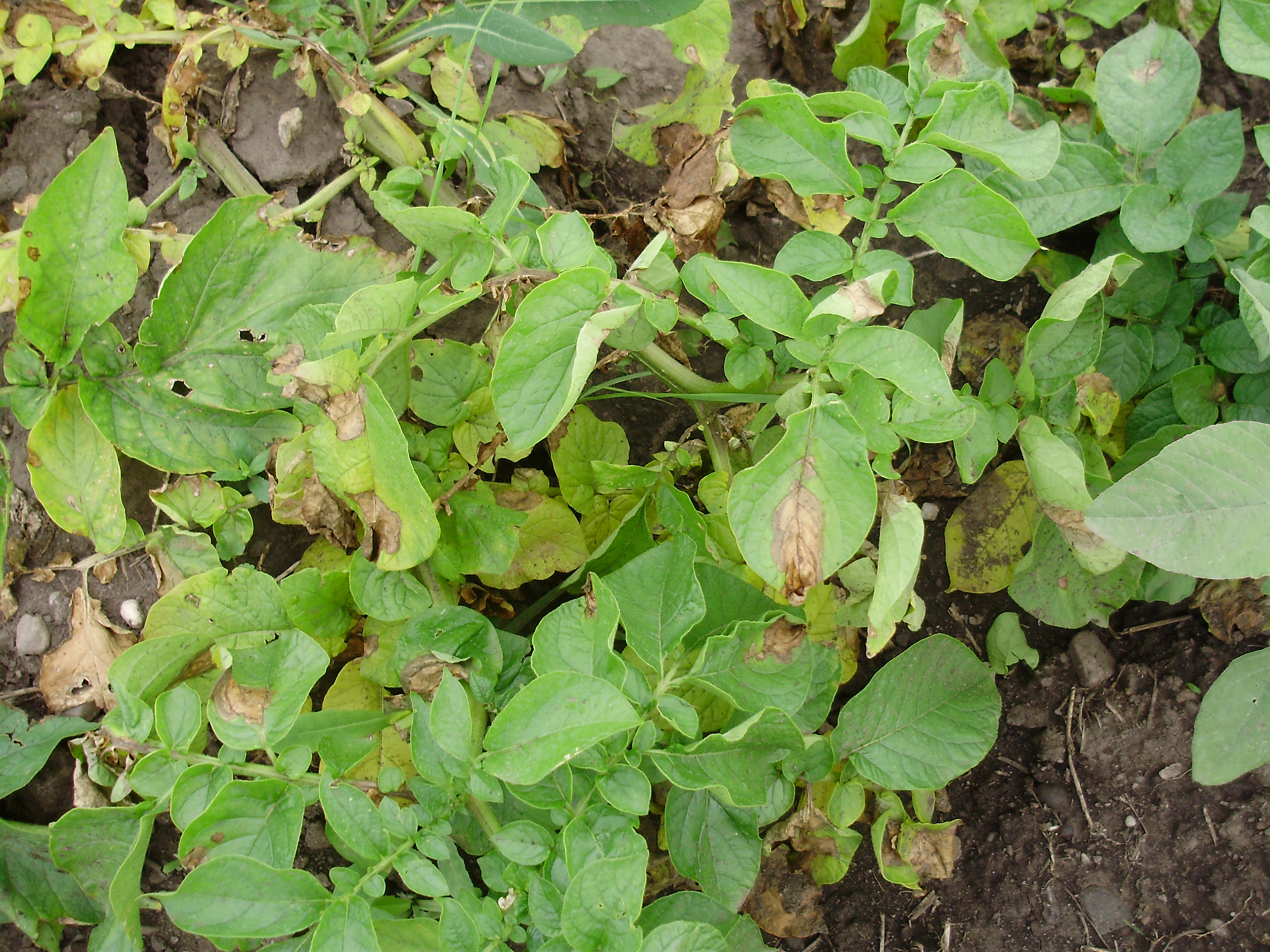
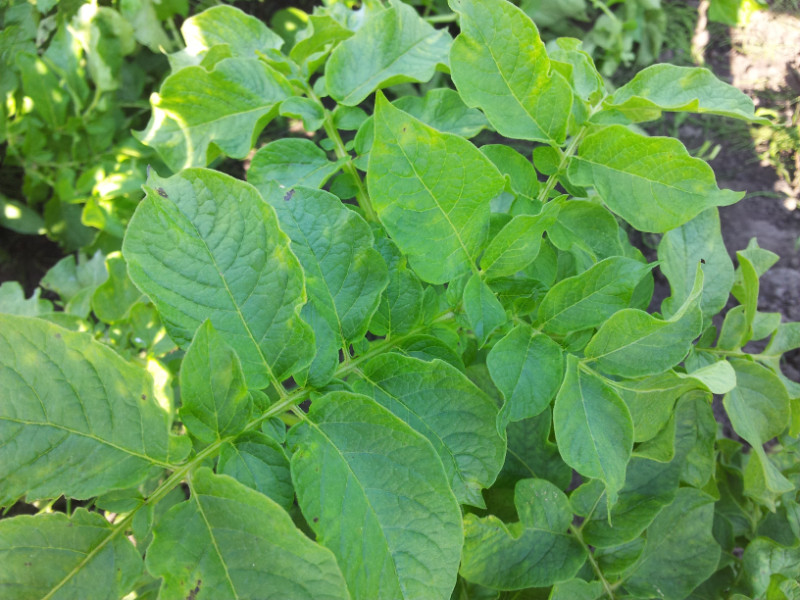
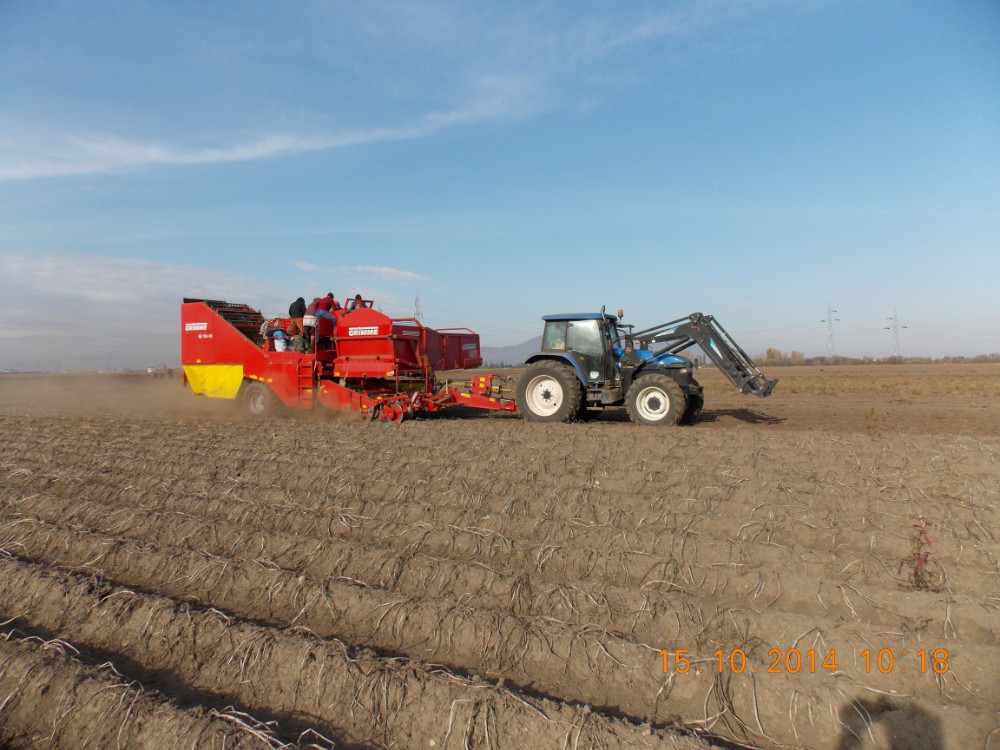
Technology compartment
Research directions and activities:
- Developing alternative potato culture technologies for green and energy products in context of climate change and global economic crisis
- Elaboration of innovative techniques and application equipment to mainten potato culture in a conservative system
- Testing new types of chemical and foliar fertilizers for potato crop
- Elaboration of scientific papers and information transfer to the main beneficiaries (farmers, processors, consumers)
- Making demonstration plots to the farmers
Quality and storage compartment
Research directions and activities:
- Quality analyzes and determinations are carried out to select potato lines and varieties with very good quality and to lead cultivation and storage technology sequences in order to obtain good quality yields
- Determinations on physical and commercial quality of potato tubers
- Observations and determinations on potato culinary qualities in order to be classified in classes of use through organoleptic analysis and quality features
- Determinations on suitability of varieties or potato samples for chips industrialization
- Determination of specific weight and potatoes content in dry matter and starch
- During storage, production is affected by physiological diseases and losses, which in turn are determined by biological elements (variety characteristics and health status) and technological (characteristics of the storage area and correct management of storage factors)
- Research is focused on the study of the influence of storage factors (temperature, humidity, air composition) as well as the influence of crop technologies (degree of fertilization, crop protection) and climatic conditions on the conservation behavior of Romanian and foreign potato varieties and breeding lines to improve selection criteria
-
- It follows:
- The level of physiological losses
- The level of losses caused by storage diseases;
- The length of dormancy;
- Intensity of sprouting;
- Storage influence upon tubers starch content
- The influence of storage on culinary and technological qualities of the tubers
www.eertis.eu
Contact persons:
Head of laboratory Ph. D., eng. Bărăscu Nina – profil![]() ,
, ,
![]() ,
,![]() ,
, ![]() ,
, ![]()
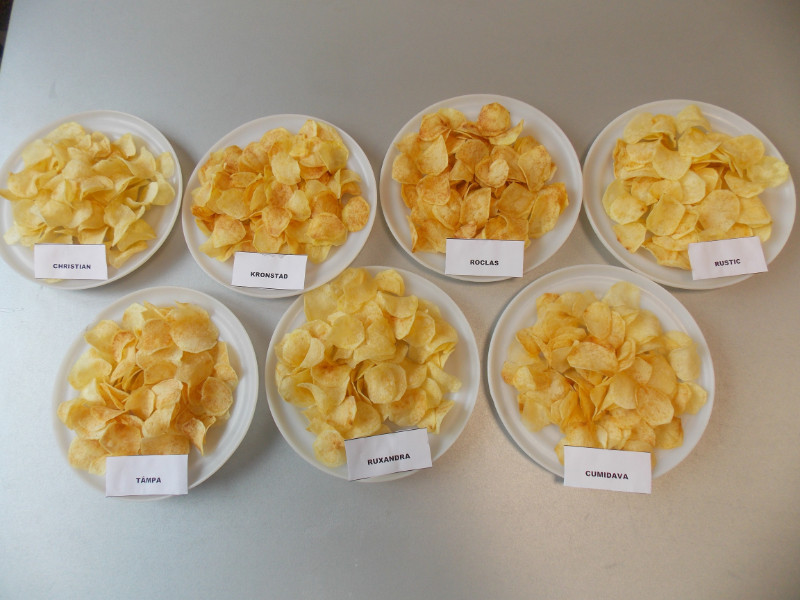
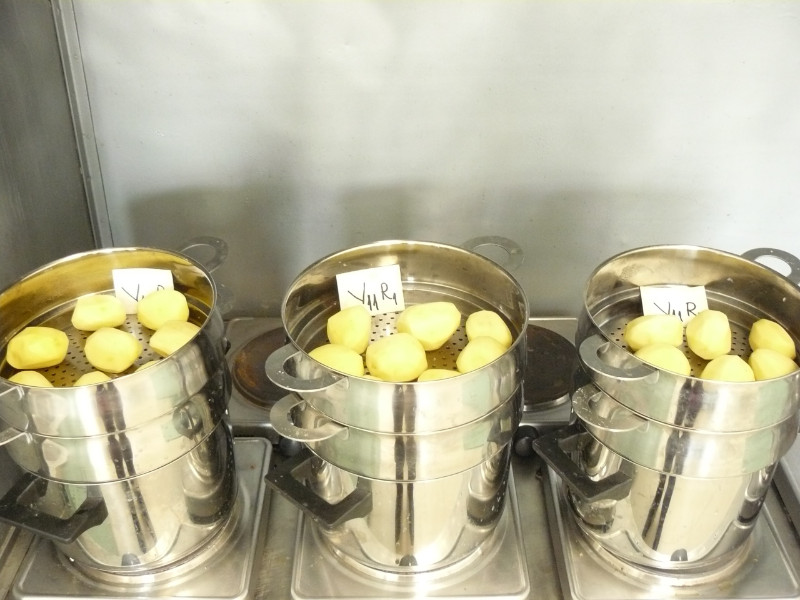
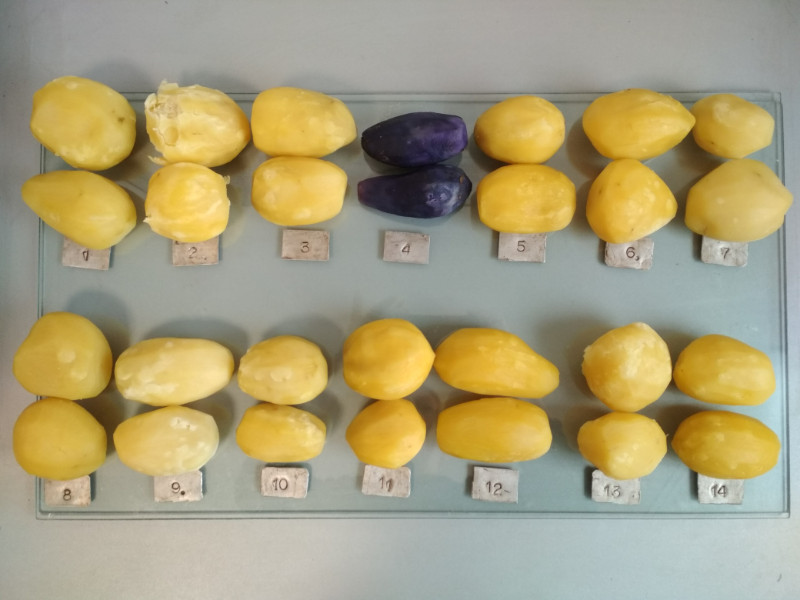
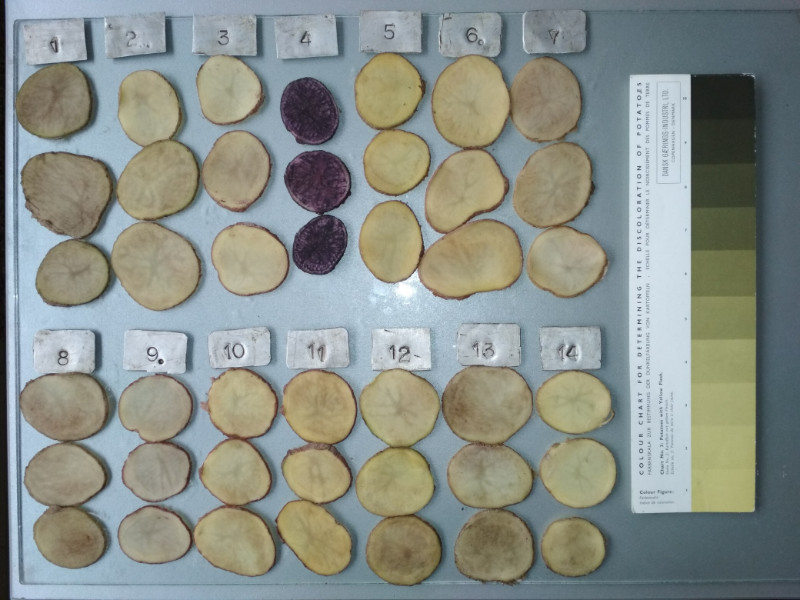
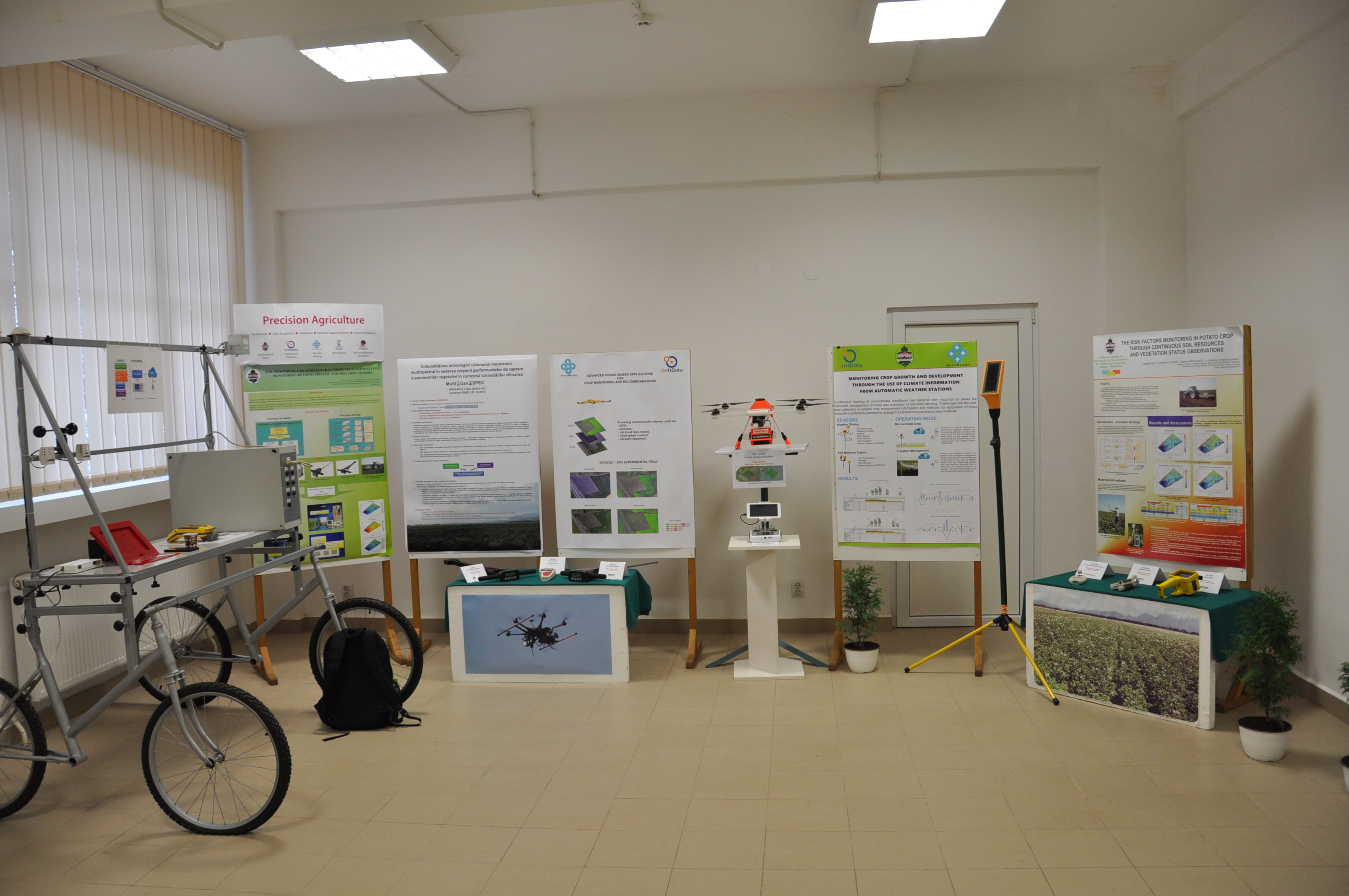
Precision Agriculture Compartment
Research directions and activities:
- Development of fundamental research aimed at substantiating the physiological bases of plant growth and production, monitoring of soil resources and vegetation state of agricultural crops using IT technologies and precision sensors, modeling and simulation of processes involved in crops achievement.
- Through own investments and through implementation of some projects Relansin, ADER, PN II, PN III and Core, were made equipments for continuous monitoring of production factors and their use in precision agriculture.
www.eertis.eu
Contact person:
Ph. D., eng. Hermeziu Manuela Laurenţia – profil ,
![]() ,
, ![]() ,
, ![]()
Sugar Beet Compartment
Research directions and activities:
- Establishing sugar beet hybrids assortment with good ecological plasticity to ensure productive stability in new climate stress conditions
- Testing of new herbicides and fungicides to ensure better protection of sugar beet crop
- Testing of new types of chemical and foliar fertilizers for sugar beet crop
- Developing of alternative technologies at sugar beet for crop efficiency in the context of climate change and world economic crisis
- Identification of methods to replace topped beet on harvesting with different variants of defoliation and scalping, such as in the extraction of the sugar in factory to be used the whole beet and reducing the percentage of impurities carried in the sugar factory
- Determining the most effective methods for reducing the percentage of impurities at harvest
- Reducing soil fertility losses by reducing the amount of fertile soil and plant debris transported together with beet to processors
- Establishment of the assortment of sugar beet hybrids with the lowest amount of adherent soil to harvest, to be recommended in culture under the specific conditions in our country
- Comparative determination of sugar content of classical topped beet, defoliated beet and of beet crown
- Comparative determination of the amount of sugar that can be extracted from the root beet classic topped and the whole root
- Comparative determination of the percentage of impurities transported at the factory depending on the type of equipment used to load the beet into the means of transport
www.eertis.eu
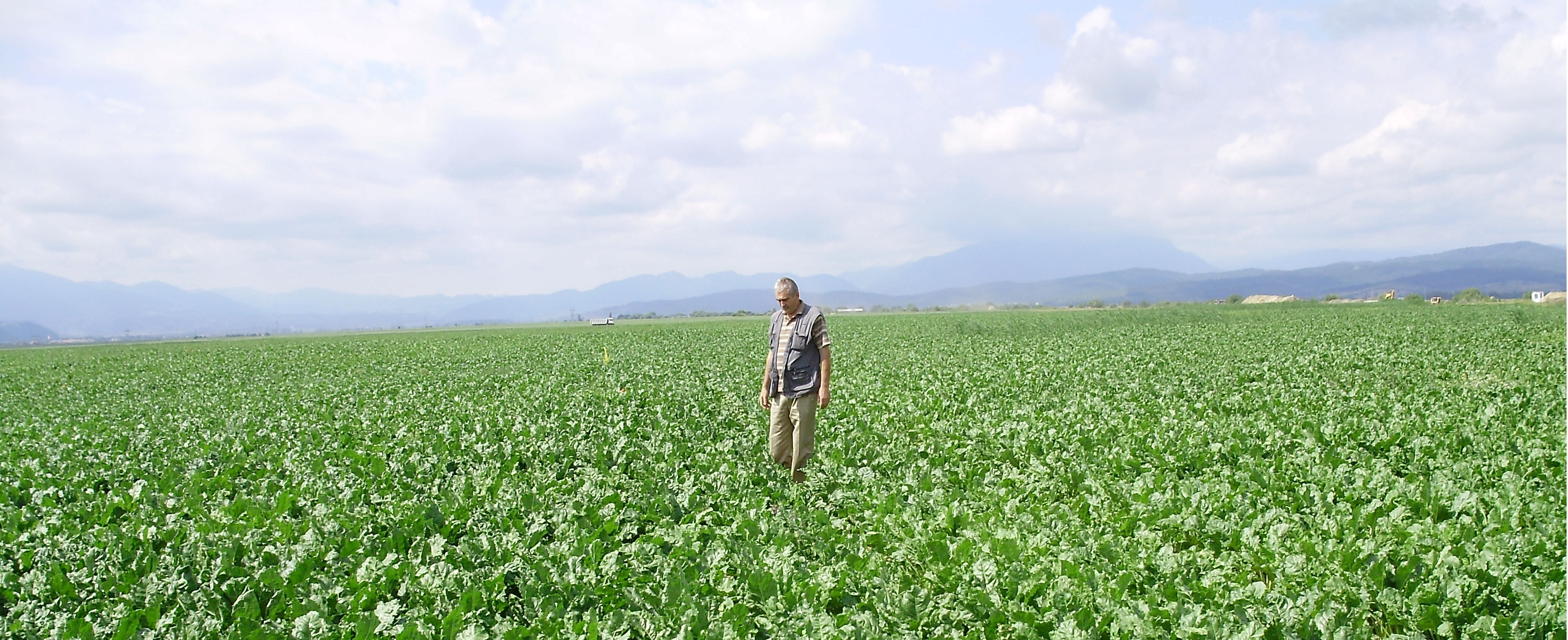
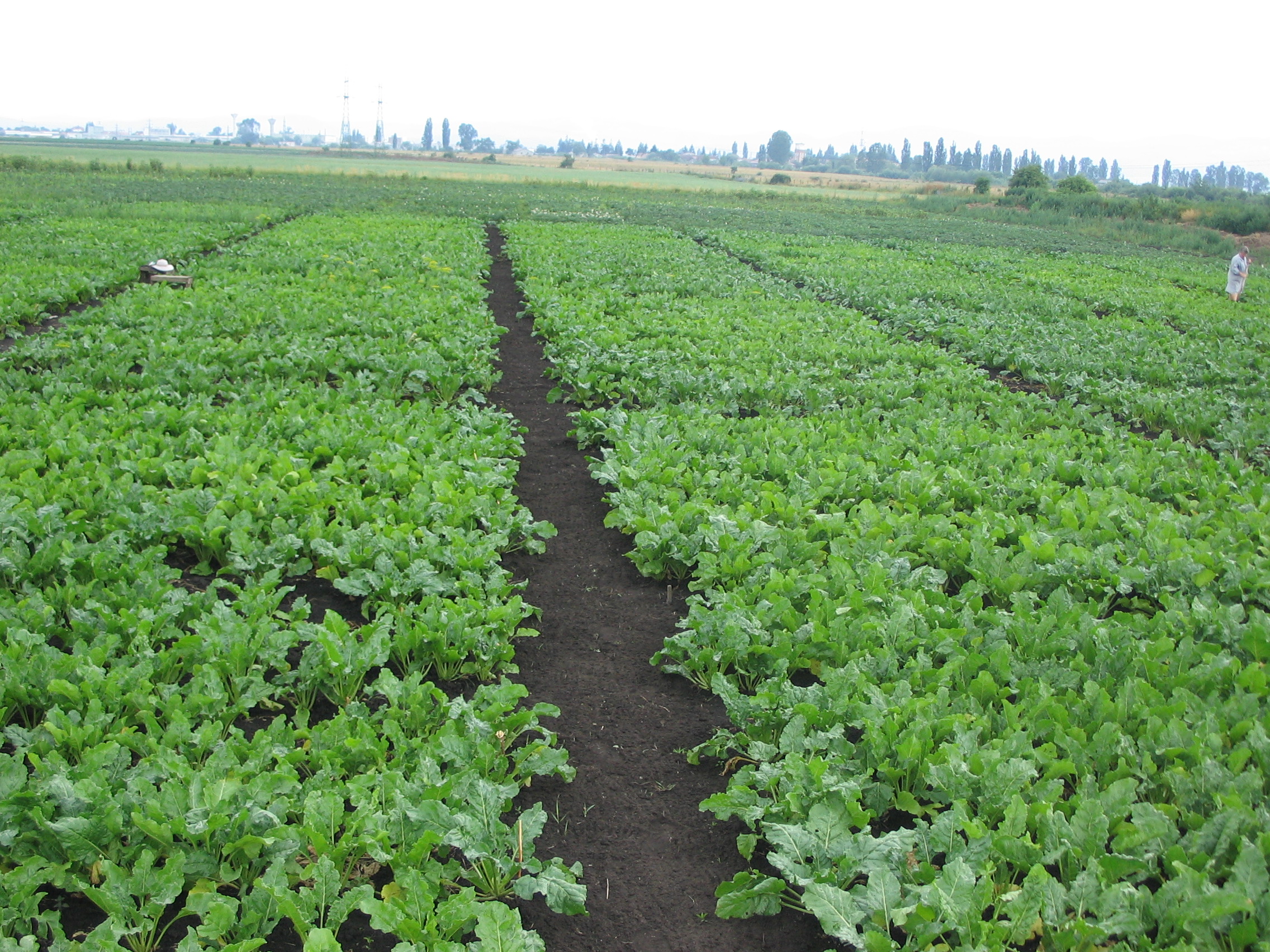
Medicinal Herb Compartment
Research directions and activities:
The research activity of medicinal plants has an old tradition in Braşov. Established in 1957, within the Research Institute for the Pasture Culture, the laboratory of medicinal and aromatic plants is later transferred to the “Plafarul” Braşov patrimony and then to Fundulea Medicinal and Aromatic Research Station.
Since 2004, this laboratory has been transferred, with the whole theme within the Research and Development Institute for Potato and Sugar Beet, participating in the development and finalization of some research programs:
- The study of medicinal and aromatic plants and their positioning in the context of sustainable agriculture, both in terms of their cultivation and use.
- Integration of medicinal and aromatic plants into rotation with other species of great importance for agriculture of our country.
- Maintaining biodiversity of medicinal and aromatic plants.
- Preserving and enriching the collection of genetic resources.
- Production of seed and planting material of biological categories.
- Introducing in culture of phyto-therapeutic plant species.
- Elaboration of technologies for cultivation of newly introduced species.
- Promotion of medicinal and aromatic herbs.
- Extending cultivated areas with medicinal and aromatic plant species.
- Maintaining collaboration with various research units (universities, botanical gardens, stations and research institutes).
Contact person: Eng. CUCU Maria
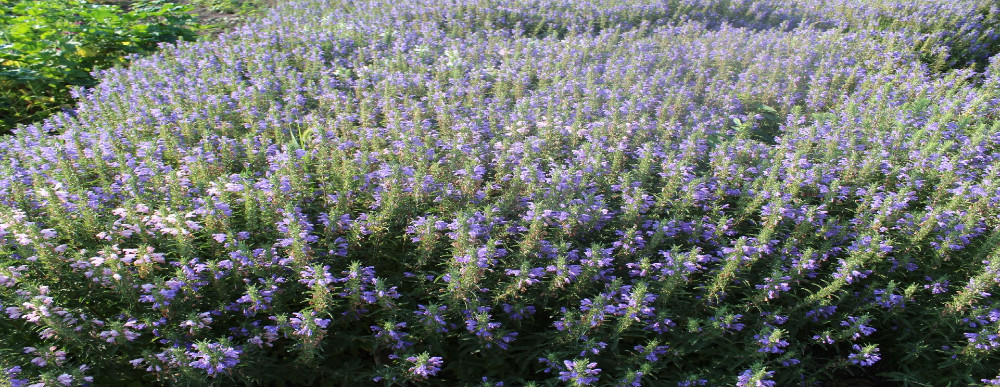
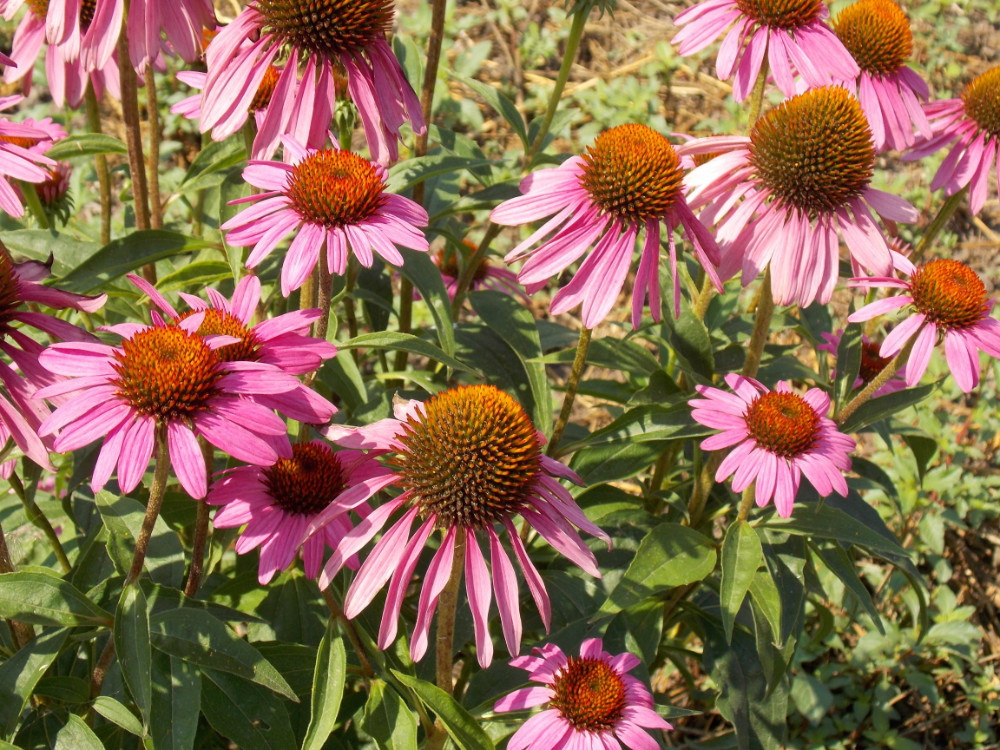
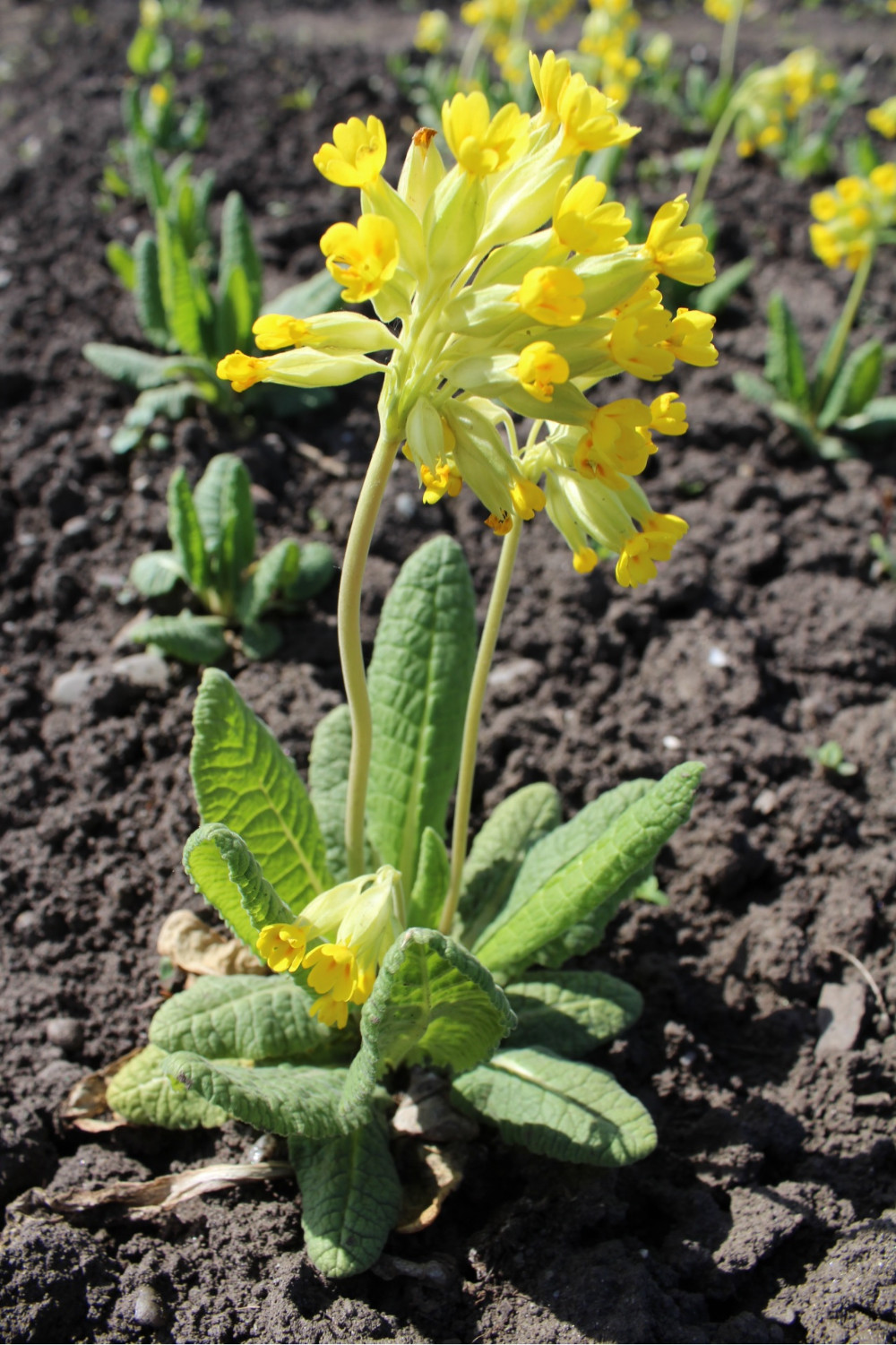
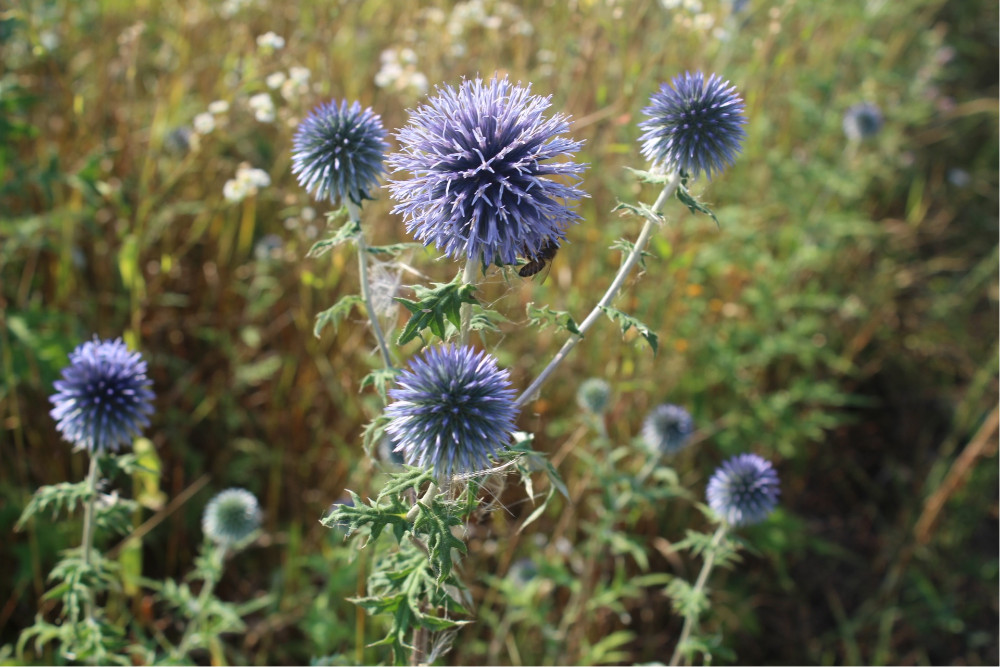
Cereals compartment
Research directions and activities:
Participation as a partner in the projects coordinated by NIRDA Fundulea, aiming to improve wheat and triticale germoplasm with genetic potential to accumulate essential quality components and high production capacity for which scientific researches are carried out that include:
- Identification of wheat and triticale genotypes resistant to Puccinia striiformis attack through artificial infection in the field
- Identification of wheat and triticale genotypes resistant to pathogens attack: Puccinia recondita, Puccinia graminis, Blumeria graminis, Septoria tritici and nodorum, Fusarium ssp
- Assessment of new genotypes to drought and extreme temperatures resistance, as well as the efficiency of nutrient utilization and tolerance to unfavorable soil conditions
- Identification of new genotypes of winter wheat and triticale, resistant to fall and sprouting
- Establishment of phytosanitary treatments for cereals in the field belonging to NIRDPSB Braşov, depending on the occurrence and intensification of pathogens and pests attack
- Recommendation in culture of the new wheat and triticale varieties tested in agro-pedological conditions of the area, following the detailed determination of their ecological plasticity
- Development of specific technologies for the new genotypes, recommended in the county and in the neighboring areas, including modern sequences, by national and international levels
- Elaboration of some training courses for farmers and support them, as a result of the requests received from the agricultural profits in the county
- Spreading of the new grain genotypes recommended in the area during scientific events, exhibitions, visits to the experimental field and demonstration lots in various areas of the county
- Publication of scientific results in specialized works, in order to inform the main beneficiaries (farms authorized in seed cereal production, cereal growers, processors)
- Production of the first biological link (Seed of the Breeder) of the newly created wheat and triticale varieties with a view to their multiplication within the NIRDPSB Brasov (Pre-base 1 and 2, Base)
- Making the farms available as quickly as possible, with these varieties, allowing sustainable agriculture with genetic resistance to disease, adapted to current and predicted climatic conditions, with a high water and fertilizer utilization ratio, with higher indexes for milling and bakery, for wheat, or for animal nutrition, biofuel production, bakery for triticale
Contact person:
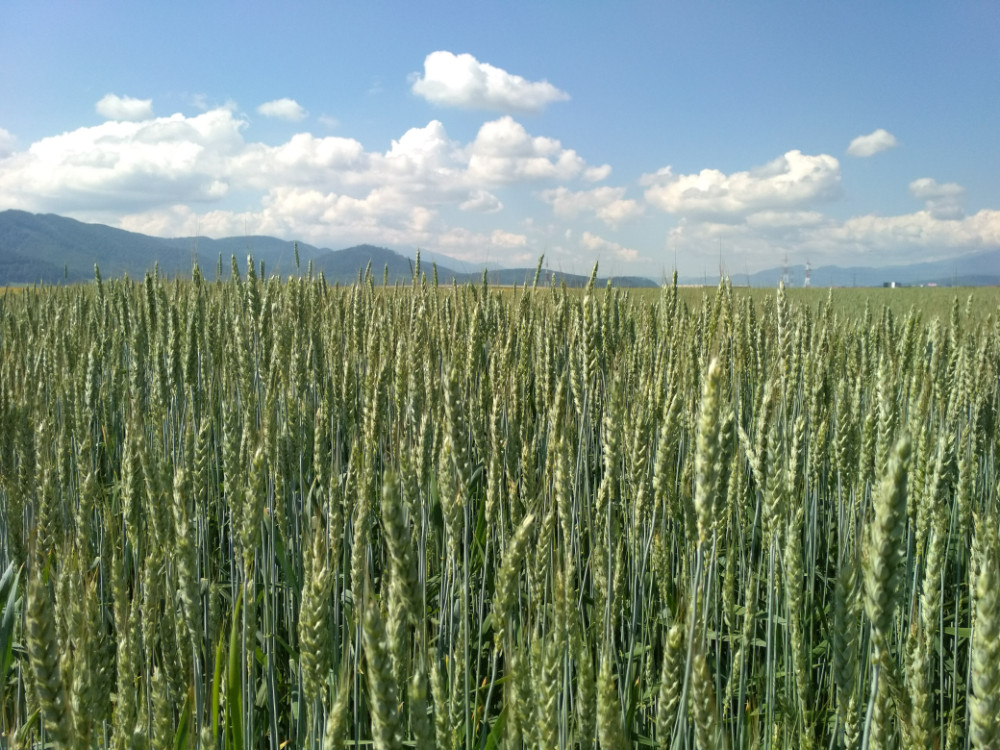
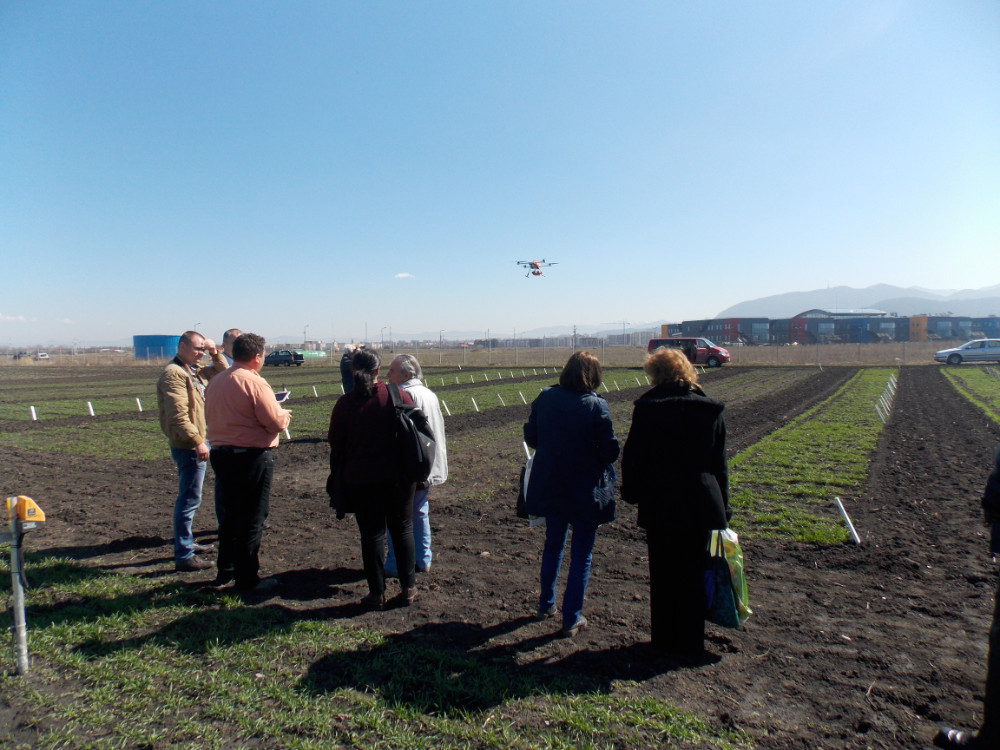
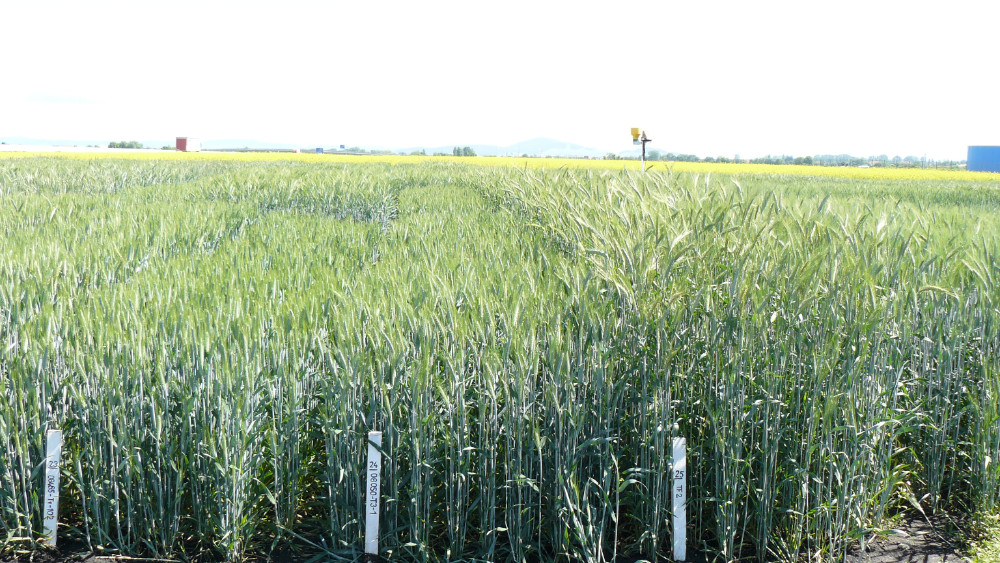
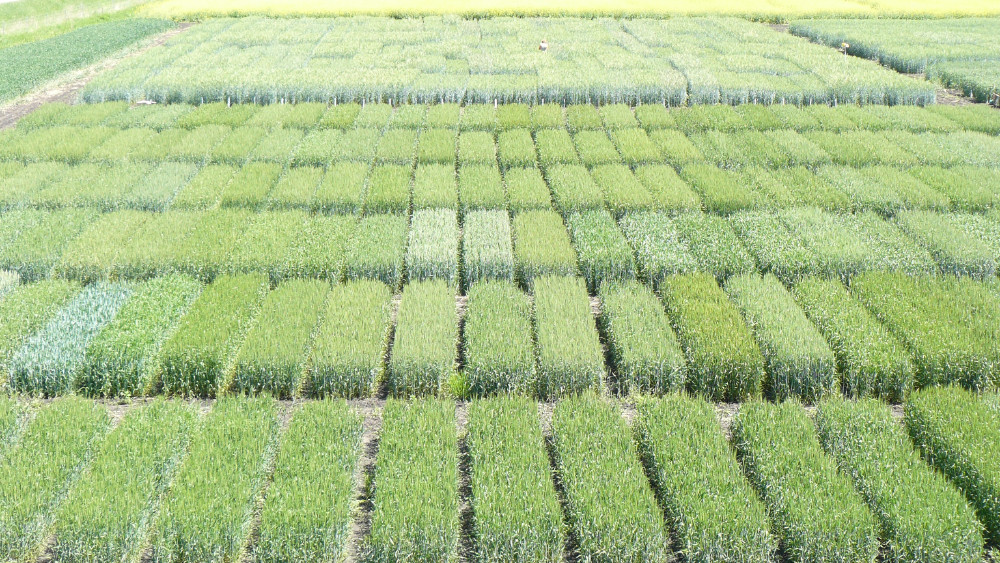


Add Your Comment